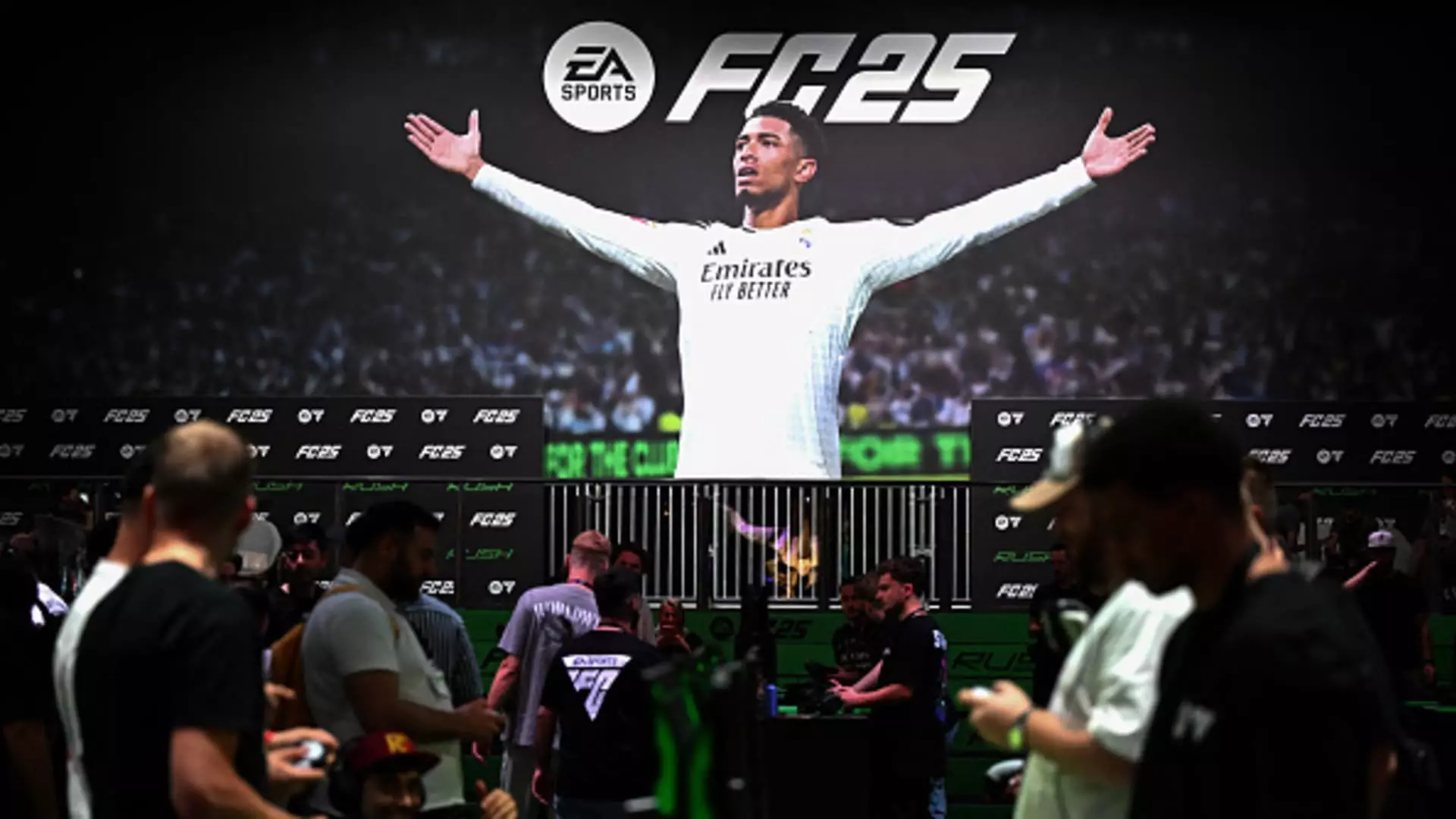Electronic Arts (EA), a major player in the gaming industry, announced a notable reduction in its full-year bookings expectations. During a recent report, the candid admission of underperformance, particularly within its flagship soccer franchise EA Sports FC, sent ripples through the market, resulting in a sharp 7% decline in share prices after the announcement. For the third quarter of its fiscal year, which concluded on December 31, EA anticipates net bookings of approximately $2.215 billion—significantly lower than its earlier estimates of $2.4 billion to $2.55 billion. This deviation not only highlights immediate financial concerns but also raises questions about the long-term health of the franchise and the company’s overall strategy.
In terms of revenue, the company indicated a projection of around $1.88 billion for the December quarter and disclosed an expected diluted earnings per share of $1.11. However, the broader implications of these figures cannot be overlooked, particularly as EA revises its annual net booking forecast down to a range of $7 billion to $7.15 billion compared to previous estimates of $7.5 billion to $7.8 billion. Such significant adjustments suggest that EA is grappling with more than just episodic setbacks; it signals a shift in the company’s standing that could have lasting effects across its various franchises. The nature of EA’s net booking calculations—encompassing both physical sales and revenue from online engagements—intensifies the scrutiny surrounding the performance of its digital platforms.
Historically, EA’s soccer franchise has been a stalwart of its offerings, but a shift from the FIFA branding to EA Sports FC has seemingly resulted in a substantial drop in consumer interest. The franchise enjoyed two years of solid growth before the recent downturn, indicating that the transition may have alienated longstanding fans. The announcement that the franchise is projected to see year-over-year declines in sales is particularly alarming, further compounded by disappointing performance of the recently launched “Dragon Age.” With a reported 1.5 million players falling short of expectations by nearly 50%, this development raises significant concerns regarding EA’s game quality and market appeal.
EA’s CEO, Andrew Wilson, acknowledged these challenges, asserting that while they continue to strive for high-quality game development, the disappointing performance of both EA Sports FC and Dragon Age must be addressed. The anticipated decline in bookings from live services, critical revenue drivers for the company, reinforces the necessity for EA to reassess its gaming portfolio and marketing strategies. With global football seeing a slowdown, it becomes critical for EA to innovate and adapt to consumer demands if they aim to regain market momentum.
With earnings announcements on the horizon, many industry analysts will be watching closely to see how EA plans to navigate these choppy waters. The ability to rally back from this adversity could set the tone for the company’s future and solidify its reputation in the competitive gaming landscape. Ultimately, these developments prompt a significant reevaluation of EA’s approach to game production, consumer engagement, and brand loyalty in an industry that is perpetually evolving.

